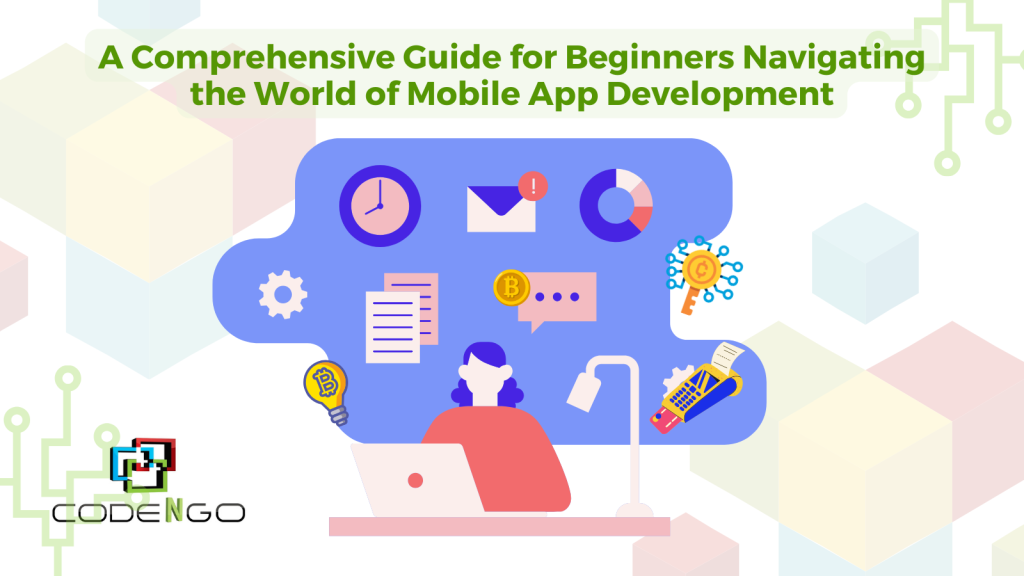Android App Development unfolds as an exhilarating journey, particularly for beginners. Within this guide, we will guide you through the fundamental tools, platforms, and steps essential to kickstart your Android app development expedition. Furthermore, a closer look at integrating cryptocurrency and online payment features will be explored, accompanied by examples and their respective pros and cons.

Android App Development Tools are software applications and utilities designed to facilitate the creation, testing, and debugging of mobile applications specifically tailored for Android devices.
Here are a few examples:
Android Studio
Android Studio is the official integrated development environment (IDE) for Android app development, offering a user-friendly interface and powerful tools.
Pros: Robust emulator, extensive documentation, and continuous updates.
Cons: Resource-intensive on lower-end machines.
Kotlin Programming Language
Kotlin is a modern and concise programming language that seamlessly integrates with Android development, providing flexibility and conciseness.
Pros: Interoperability with Java, reduced boilerplate code, and strong community support.
Cons: Some existing resources and libraries are primarily in Java.
Eclipse
Eclipse is a versatile IDE that supports various programming languages and includes plugins for Android development.
Pros: Extensive plugin ecosystem, cross-platform support, and customizable interface.
Cons: Can be complex for beginners, and development may feel somewhat dated.
IntelliJ IDEA
IntelliJ IDEA is a Java IDE with strong support for Android development, offering features like smart code completion and powerful debugging.
Pros: Intelligent code analysis, excellent refactoring tools, and a clean user interface.
Cons: Heavier than some other IDEs, may have a steeper learning curve.
Xamarin
Xamarin is a cross-platform development tool that allows the use of C# for building Android apps, facilitating code sharing across platforms.
Pros: Code sharing across platforms, access to native APIs, and a large community.
Cons: Learning curve for Xamarin.Forms, limited support for some third-party libraries.
Android App Development Platforms, what are those?
Platforms for Android App Development are foundational environments that provide services and resources for building, testing, and deploying Android applications.
Examples:
Firebase
Firebase is a comprehensive platform by Google, offering real-time databases, authentication, and cloud functions to simplify backend development.
Pros: Seamless integration with other Google services, scalable infrastructure, and robust security features.
Cons: Some services may have usage limits on the free tier.
GitHub
GitHub is a widely-used version control platform that facilitates collaborative coding and hosts code repositories.
Pros: Robust version control, extensive collaboration features, and a vast community.
Cons: Private repositories may require a paid subscription.
Bitbucket
Bitbucket is a Git repository management solution with integrated issue tracking and continuous integration.
Pros: Unlimited free private repositories, tight integration with Jira, and built-in CI/CD.
Cons: Limited free build minutes for continuous integration.
SourceForge
SourceForge is a web-based platform offering version control, bug tracking, and collaboration tools for software development.
Pros: Hosting for open-source projects, a wide range of developer tools, and community forums.
Cons: User interface may feel dated compared to newer platforms.
GitLab
GitLab is a comprehensive platform covering the entire DevOps lifecycle, providing features like CI/CD and collaboration tools.
Pros: Integrated CI/CD, container registry, and a free tier for unlimited private repositories.
Cons: May require more server resources for self-hosted instances.
Online Payment Integration
Online Payment Integration involves incorporating services into Android apps that facilitate secure and seamless monetary transactions.
Examples:
Stripe
Stripe is a widely-used online payment integration platform, offering a developer-friendly API for various payment methods.
Pros: Easy to integrate, extensive documentation, and support for global transactions.
Cons: Transaction fees may be higher for certain payment methods.
PayPal
PayPal is a trusted online payment platform, supporting a variety of integration options for secure transactions.
Pros: Recognized globally, user-friendly interfaces, and support for international transactions.
Cons: Transaction fees can be relatively high for small transactions.
Braintree
Braintree, owned by PayPal, simplifies complex payment processes and supports multiple payment methods.
Pros: Secure and reliable, transparent pricing, and easy integration.
Cons: Transaction fees may be higher compared to some alternatives.
Square
Square offers seamless integration for both in-person and online payments, with transparent pricing and additional point-of-sale solutions.
Pros: User-friendly, versatile, and transparent pricing.
Cons: Limited international availability compared to some competitors.
Adyen
Adyen is a global payment platform supporting various payment methods and providing a single platform for multiple transaction types.
Pros: Global reach, comprehensive features, and optimized for mobile and online transactions.
Cons: Pricing may be on the higher side for small businesses.
As you venture into Android app development, carefully choose tools and platforms that align with your project’s requirements. Additionally, when integrating cryptocurrency and online payment features, consider the specific needs of your users and the nature of your app. Keep exploring, learning, and adapting to stay at the forefront of the dynamic field of mobile app development. Happy coding!
Share this article on